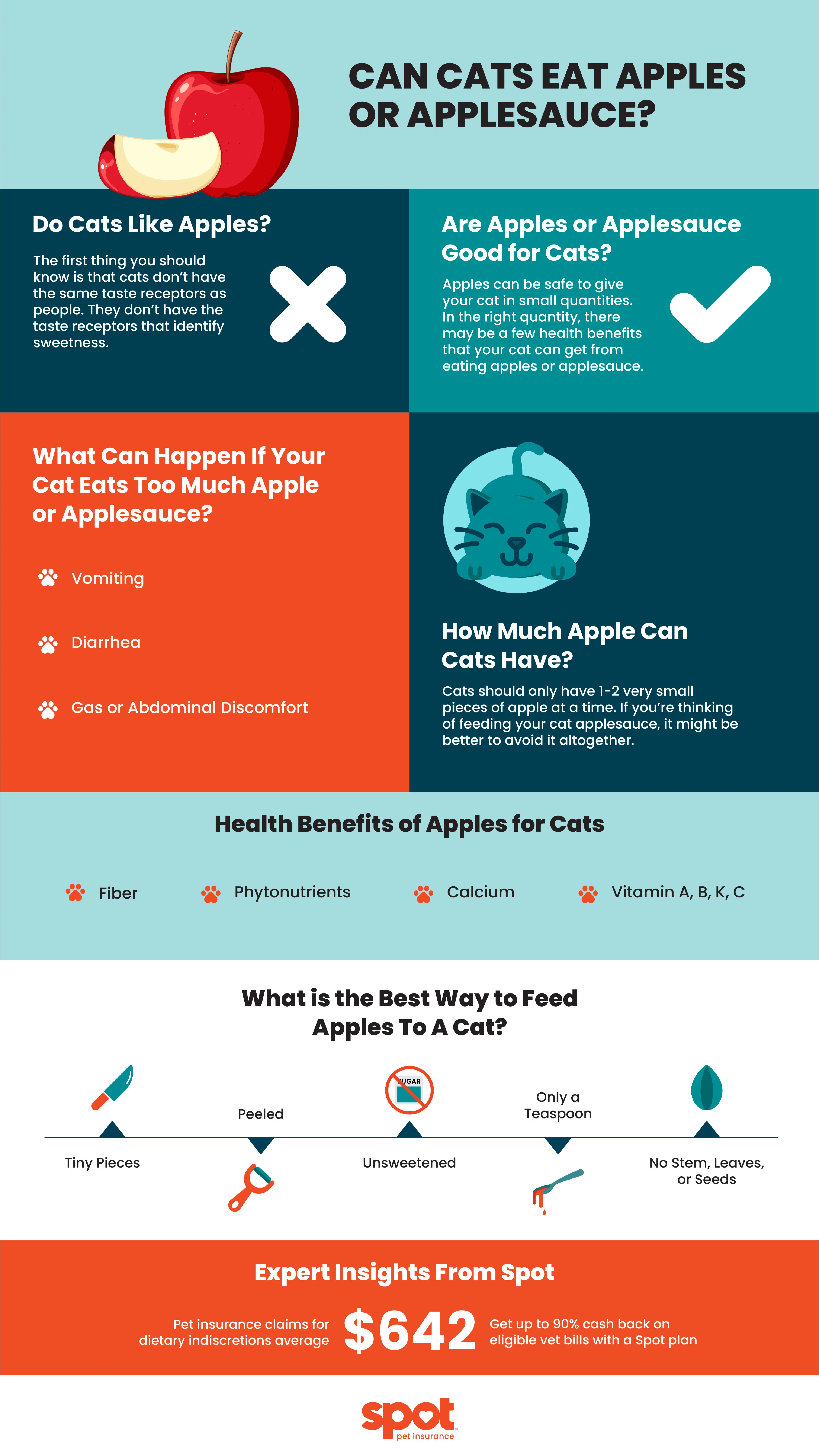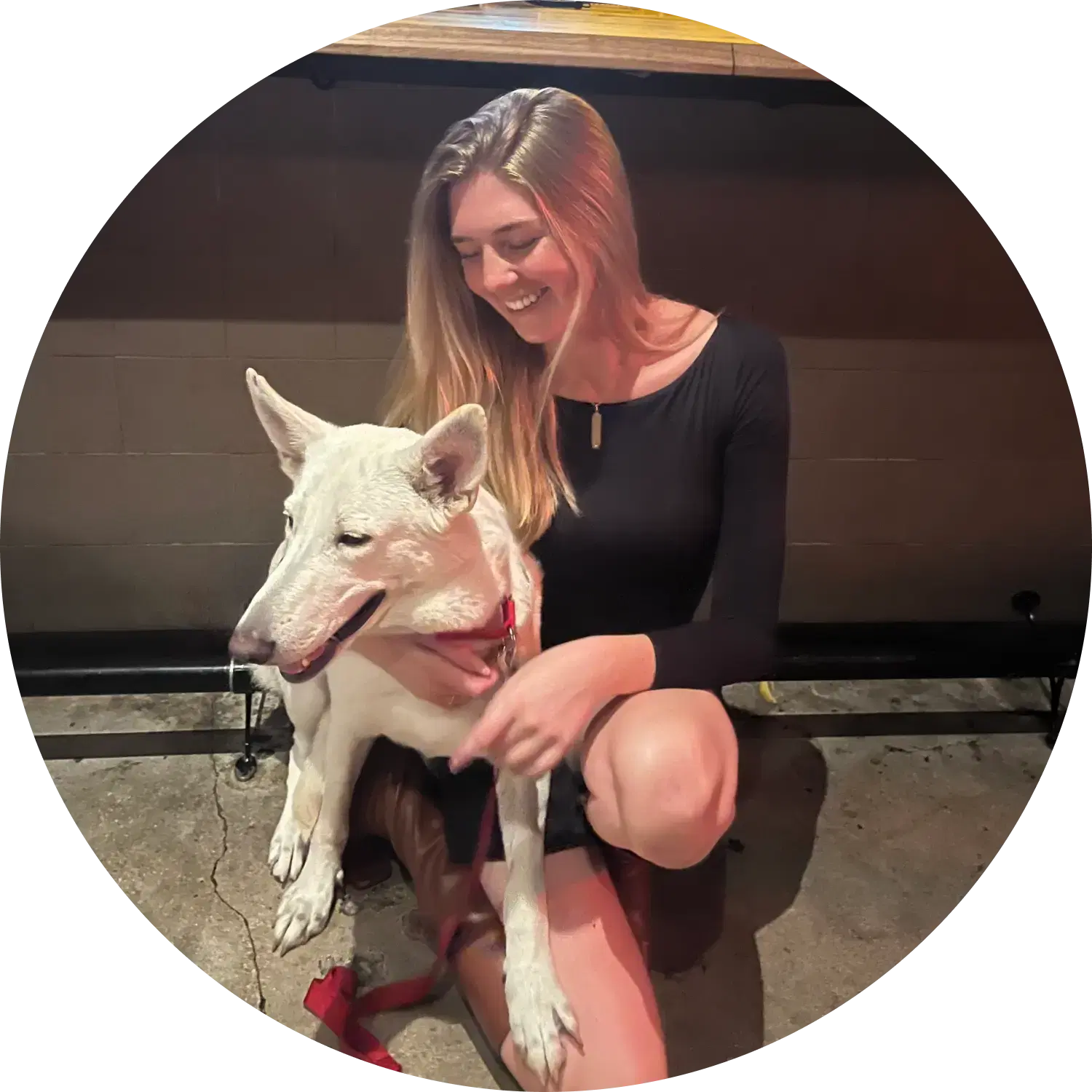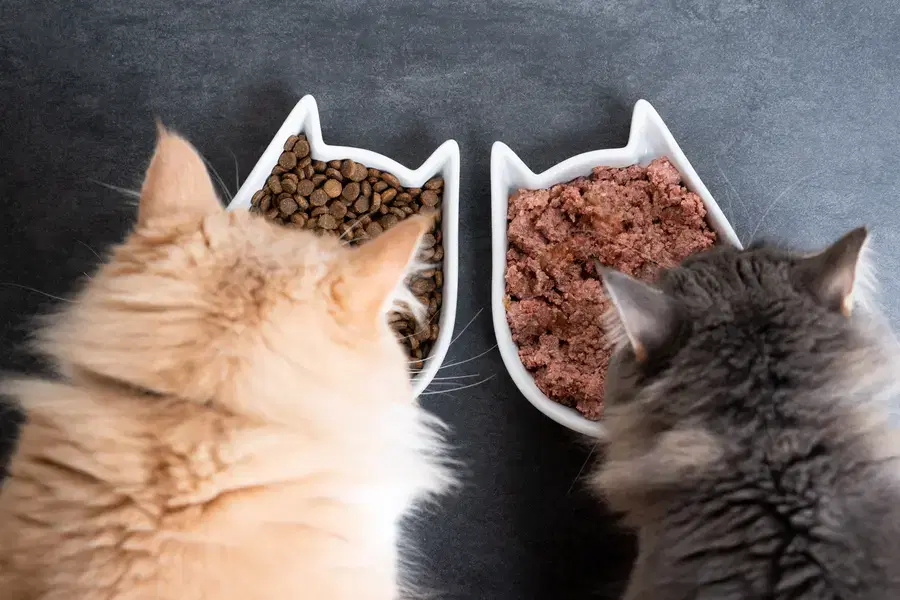An apple a day keeps the doctor away, we’ve all heard that before right? There might be some truth to it regarding people, but it doesn’t hold up for our feline companions. Unfortunately, cats don’t get the same benefits from eating apples that we do, but apples can generally be a safe snack for them in very small amounts.1

Do Cats Like Apples?
The first thing you should know is that cats don’t have the same taste receptors as people. They don’t have the taste receptors that identify sweetness, so even if your cat does like apples, the sweetness likely won’t be the reason.
Are Apples or Applesauce Good for Cats?
Apples aren’t important for your cat’s diet. Cats are carnivorous in nature and most high-quality cat foods found at the store will have the nutrients needed to meet their dietary needs. So, if you’re choosing to give your cat a few pieces of apple, it should be as a treat and not part of their regular diet.
Apples can be safe to give your cat in small quantities.1 In the right quantity, there may be a few health benefits that your cat can get from eating apples or applesauce.
The Health Benefits of Apples or Applesauce for Cats
Apples contain calcium, and Vitamins A, B, C, K, fiber, and phytonutrients. Each of these can be beneficial to a cat’s overall health. Cats can experience a range of benefits from these nutrients including2 -
Calcium – An essential mineral for a cat, calcium helps in the formation of teeth and bones. In addition, calcium also helps blood clot, aids in nerve impulse transmission, and supports muscle contractions.3
Vitamin A - Supports a strong immune system and healthy vision in cats.
Vitamin B - Supports digestion, muscle function, and skin and coat health.
Vitamin C – Promotes joint and bone health.
Vitamin K – Helps in the production of proteins necessary for blood coagulation.
Fiber – Helps in the regular digestion of food but can also help with curing symptoms of diarrhea and constipation.
Phytonutrients – Help maintain health by slowing the destructive oxidative process of cellular molecules and support immune responses.
All these nutrients can make apples seem like a good addition to your cat’s diet, but that doesn’t mean cats need to eat large amounts of apples or applesauce to stay healthy.
How Much Apple Can Cats Have?
Cats should only have 1-2 very small pieces of apple at a time. If you’re thinking of feeding your cat applesauce, it might be better to avoid it altogether. Applesauce can often has ingredients like cinnamon, sugar, and other spices that aren’t good for your cat to digest.
What is the Best Way to Feed Apples or Applesauce To A Cat?
There are a few things to note before adding apples or applesauce to your cat’s food bowl. Here are a few suggestions on the best way to add apple pieces or applesauce to your cat’s diet -
Tiny pieces – The size of your cat’s kibble is your reference for how small you should cut the apple pieces before adding them to your cat’s bowl.
Peeled – The peel won’t necessarily harm your pet, but it is better to remove the peel to make digestion quicker and easier, especially for felines with more sensitive stomachs.2
Unsweetened – Store-bought and unsweetened applesauce is the way to go for your cat. Too much sugar can cause obesity and lead to conditions like diabetes.
Say no to preservatives – Don’t let your cat ingest any preservatives. They can cause serious harm to your cat.
Look before you leap – In the case of applesauce, it is best to give your cat just a teaspoon, if any at all. If you do, watch for negative side effects before deciding to add it to your cat’s regular rotation of snacks and treats.
No stem, leaves, or seeds – Remove the seeds, leaves, and stem of the apple before giving a piece to your cat. These parts all contain cyanide which can be very poisonous and even fatal if consumed in a large quantity.2
Stick to the recommended quantities. More apples in your cat’s diet does not equal more love for your pet. Too much apple in your cat’s diet can lead to serious complications.
What Can Happen If Your Cat Eats Too Much Apple or Applesauce?
If your cat eats too much apple, you should keep an eye out for the following symptoms. Contact your vet right away if you see –
Vomiting
Diarrhea
Gas or abdominal discomfort
Expert Insights From Spot
While sharing our favorite foods with our pets can be tempting, it's important to remember that not all human foods are safe for cats. Spot's internal data shows that pet insurance claims for dietary indiscretions average $642*, highlighting the importance of caution and research before sharing snacks with your pet.
What Cats Should Not Eat Apple or Applesauce?
Some cats can be more susceptible to getting an upset stomach after eating apples or applesauce. For these cats, apples should be eliminated from their diet, and other sources of proteins and vitamins should be used instead. The list includes –
Cats with Diabetes – If your cat has already been diagnosed with diabetes or shows symptoms of the condition, it’s highly recommended that you avoid feeding them any apples.
Specific diets – If your vet has recommended a specific diet for your pet to help with training or the growth of your pet, it’s best to avoid giving them any apples and instead stick to the diet suggested by your vet.
Conclusion
Apples are very good for you, and it’s perfectly safe for you to have one every day if you want to. But because cats are carnivorous; most of their diet should come from meat. That being said, adding a few small pieces of apple to your cat’s food every once in a while shouldn’t cause them much harm and can be a healthy treat. Take a look at a few other fruits that cats can eat.
How Spot Can Help
Spot Pet Insurance offers customizable Accident-Only and Accident and Illness plans that offer up to 90% cash back on eligible vet bills. Spot plans offer pet parents additional financial protection so that you can choose the best treatment for your pet with less worry about the cost. Customize a plan for your pet today!

The resident animal enthusiast at Spot. I have a lifetime of pet parent experience. If it has fur, feathers, or scales, I’ve probably shared my home with it. I aim to be a reliable source, blending experience with a dedication to the well-being of pets.
*Jan 2019 to Aug 2024 administrator claims data.
“Can Cats Eat Apples? Read before You Feed,” Purina, n.d., www.purina.co.uk/articles/cats/feeding/what-cats-eat/can-cats-eat-apples.
Ingraham, Leslie. “Can Cats Eat Apples?” Wag Walking, 16 Sep. 2022, wagwalking.com/wellness/can-cats-eat-apples#health-benefits-of-apples-for-cats.
Amidor, Toby, et al. “Do Cats Need Calcium Supplements?” Daily Paws, www.dailypaws.com/cats-kittens/cat-nutrition/cat-vitamins-supplements/are-cat-calcium-supplements-necessary.
The information presented in this article is for educational and informational purposes only and does not constitute or substitute for the advice of your veterinarian.












